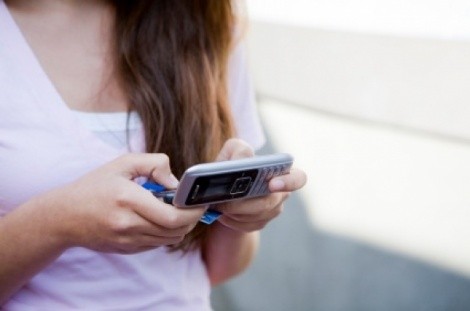
I take the heretical view that multitasking is inefficient and probably unhealthy. I don’t text because my ordinary life does not lend itself to hourly status reports. Most people are like me. We all have too few stunning insights to intrude into others’ business with the thought of the moment. Besides, who has extra hours in the day to peck out banality on a miniature keyboard?
My friend says the basis of our disagreement is generational. Simply stated, her generation texts; mine doesn’t. She is partially right. Our paradigms are as different as analog and digital. My paradigm took shape in the pre-Internet age. My cohorts worked in offices, shops, schools or factories. We didn’t devote hours every day to e-mail or surfing the Web. We didn’t telephone our friends, spouses or children on company time. We made long-distance calls only on Sunday when the rates dropped.
She has a different worldview. She is one of 58 million Millennials for whom “wired” means Internet connectivity, while for me the word describes a condition resulting from a hit of Dexedrine. Advances in communications technology have left me in the dust even as she and her peers have developed an insatiable appetite for the latest gizmo and its apps. According to a study by the Pew Research Center, 75-percent of teens own cell phones. Most of them—a whopping 88 percent—text. Sixteen-year-old Kate Moore, the reigning National Texting Champion, sends 12,000 text messages a month. Do the math on that one. She has to be multitasking on the toilet, doesn’t she?
Moore takes pride in her ability to compose and send text messages without looking down at the cell phone. In other words, while engaged in a conversation with her parents, she can text her boyfriend without breaking eye contact. This so-called skill has limited utility. I do see it being useful in a scenario involving a kidnapper or mugger, but otherwise, its only value is on The David Letterman Show as a Stupid Human Trick.
That the practice is patently rude is the larger issue for me. If I have a visitor in my living room, I don’t want our face-to-face time subverted by a cell phone. Interrupting our conversation to respond to texts sends me a simple, nondigital message: My visitor considers me less important than someone else. Of course, there are situations that justify interruption, but they are as rare as a rotary-dial telephone. A worse lapse of civility, for which there is no justification, is surreptitious texting. If, as we talk, my visitor is texting from a cell phone concealed in his lap, I am forced call him on it. Rahm Emanuel, Obama’s chief of staff, did just that a few times in cabinet meetings, and Obama has now banned cell phones from all White House meetings.
Take note, Ralph Becker! The mayor was a no-show panelist at an event I attended not long ago. The moderator waited a long time for Becker and finally began the program without him. When the mayor arrived, he took a seat near me in the back of the room. The panelists talked. Becker worked his Blackberry discreetly. The event concluded with a Becker monologue. Nothing he said erased the effect of his self-important behavior.
My wife says I should be more tolerant. I know texting, like smoking, is often an expression of a compulsive personality. Researchers at the University of Maryland have documented withdrawal symptoms when people like Moore give up texting cold turkey. The pervasive dependence on smart little machines and the access to “social media” they provide is nothing if not ironical—friendships nurtured in electronic isolation. When I was a student at the University of Utah, I spent some portion of every day in conversation at a crowded table in the cafeteria. Go there today and you see students sitting alone, cocooned by laptop, cell phone and iPod. No one is smiling. I feel sorry for them. Human interaction is far more satisfying face to face than F2F.
I would change my opinion of texting if each message were pithy, or if Moore were celebrated for sending 12 gem-like haiku and not 12,000 inanities. Of course, texts are never artful, but the medium has such potential! The insistence on brevity resonates with wordsmiths like me. Less is more when stringing words together like pearls. The brain retains snappy, short constructions even as it resists the torturous rigmarole of multitasking. Mine your own brain for memorable nuggets. Think of “It’s the economy, stupid!”—James Carville’s winning strategy in the 1992 presidential campaign; “Turn on, tune in, and drop out,” a coinage of the psychedelic-drug guru, Timothy Leary; foodmeister Michael Pollan’s succinct credo, “Eat food. Not too much. Mostly plants.” Or Julius Caesar’s “Veni, vidi, vici” response to the Roman Senate. Each could have been crafted as a text message.
The truth of the matter is that each text is ephemeral. Text messages have no pretensions and deserve no respect. When my young friend gets to be my age—when multitasking has been utterly discredited—she will look back on texting as an odd, narcissistic medium. I hope she remembers me in three, byte-size syllables: He was right!